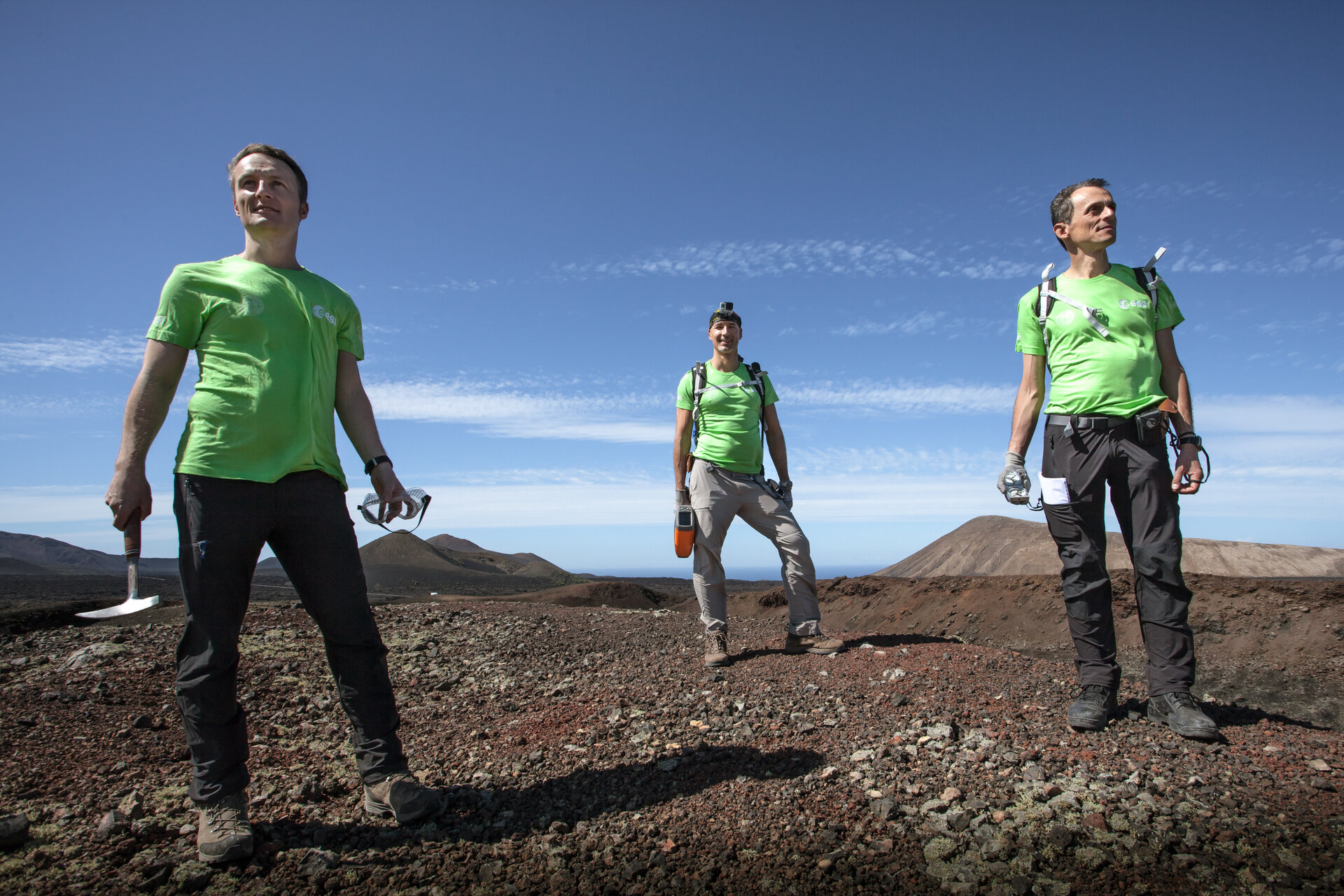Internship at EAC: Electronic Fieldbook Development
The European Astronaut Centre is looking for a dynamic intern to continue Electronic Fieldbook Development (PANGAEA). This full-time internship is for six months and is based at EAC, near the historic city of Cologne.
Overview of the PANGAEA course
The training program PANGAEA (Planetary ANalogue Geological and Astrobiological Exercise for Astronauts) is designed to provide geological training for astronauts for future missions on the Moon, Mars and Asteroids. The Geologic Training Lessons and the Geological Field Trip intend to convey to the astronauts a basic knowledge about geologic processes and environments on the Earth, the Moon, Mars and asteroids, as well as to develop the crew’s observational and decisional skills in identifying prominent geological features on field, conducting efficient sampling and report correctly to the ground the observations gathered during the field activity. The training also involves tests of technological tools for sampling and scientific analysis on field and the development of operation concepts for geological field activities.
Geology and geo-microbiology research is a primary scientific goal in current satellite and rover missions to Mars, Moon and asteroids, and these disciplines will have an even greater importance in future manned planetary exploration.
For astronauts, knowledge of the Earth geology represents the first step towards understanding the specificities of other planetary bodies, and has a strong relationship with the tasks of Earth observation currently performed from the ISS.
Tasks proposed in this internship
During planetary activities and analogue simulations on Earth, astronauts gather a variety of data – including pictures, videos, audio recordings, text notes, GPS locations and scientific data retrieved with analysis tools, such as spectrometers – and associate them to the retrieved samples, in order to increase their scientific value.
Currently, data are captured through a multitude of devices and, mostly, stored locally. In order to improve the effectiveness of operations, scientists located in a Control Room should ideally receive in near-real time at least a relevant portion of the data acquired on the field and, after a brief analysis, provide scientific and operational guidance to the astronauts. In addition, the system shall include a procedure viewer to guide the astronauts through the execution of procedures and experiments.
This 'Electronic Fieldbook' is currently in its early development. The selected candidate will continue this activity according by adding new modules and features to the system.
Duties
- Familiarising with the data collected during past PANGAEA missions.
- Familiarising with the data collection and structuring process implemented during past PANGAEA missions.
- Familiarising with the current version of the system, with the framework used and with all the requirements for the add-on expansions.
- Designing, producing and testing of new modules of the system, like a support database, an operation database or a procedure viewer, all to be integrated in the current version of the system.
- Laying the groundwork for the development of future modules that will allow to connect external peripherals – like 360° camera or spectrometers – to the portable device carried by the astronauts.
Desired skills and expertise
Applicants must:
- Be enrolled in a Masters course or equivalent post-graduate qualification (preferred subjects are software engineering, computer sciences, aerospace engineering, systems engineering).
- Have academic or professional experience with the programming languages and frameworks currently used in the project: Apache Cordova, NoSQL DB, Java, JS, HTML, P2P, REST paradigm.
- Have a good knowledge of networking protocols, as the system will work in scenarios with unreliable connectivity.
Applicants are also required to be:
- Fluent in English
- Organised and result-oriented
- Passionate to work in complex environments
Enthusiasm and the willingness to show initiative are important. Successful applicants will be expected to work as part of a team within a multi-cultural environment. Having experience in geology or planetary sciences will be an advantage for a successful candidate.
TERMS AND CONDITIONS
- Full-time internship, 5 days per week (40 hours per week)
- €600 monthly allowance (if the applicant is enrolled as a student and lives more than 50 km from EAC, 300€/month if less than 50 km)
- The non-resident allowance will also be granted to students with special needs, irrespective of their residency status.
- Duty station is the European Astronaut Centre outside Cologne, near Cologne-Bonn airport
- Earliest start date: 1 June 2018
- You must be a citizen of an ESA member or cooperating state in order to be eligible
More information and the application form can be found here.
Closing date
The closing date for applications is 2 March 2018.
How to apply
Interested? If so, please send to esa.caves@esa.int your:
- Curriculum Vitae
- Letter of Motivation
- ESA application form


